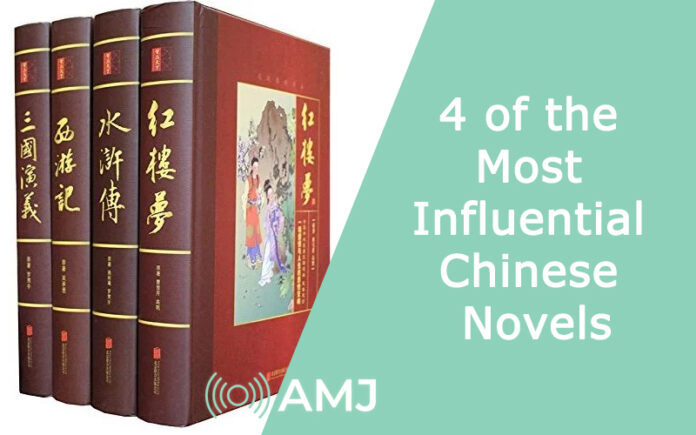Early Chinese storytelling was an oral tradition, and it took many centuries for written novels to gain prestige in Chinese tradition. Modern scholars have identified six pieces of work that are now considered the most influential Chinese Novels. We will examine four of them and learn why they have received this revered status.
Contents
Water Margin
Water Margin, written in the 14th century, is one of the earliest examples of Chinese literature written in vernacular Chinese, which is the written form of the commonly spoken dialects of China. Attributed to Shi Nai’an, Water Margin follows the adventures of Song Jiang and his 108 companions as they first fight against the Song Dynasty and then later fight with them. As well as being influential for how it was written, Water Margin is also praised for its excellent mastery of mood and tone, and its humorous and vivid language. Not only did Water Margin’s style and tales influence other Chinese literature, but its effect is evident in Japanese literature and even some modern western literature.
Journey to the West
Published in the 16th century but set in the 7th century, Journey to the West is the second of our influential Chinese novels. There is some controversy over the authorship of the work because it is widely based on already published folk tales; however, it is widely attributed to Wu Cheng’en. The story follows a Tang dynasty Buddhist monk, Xuanzang, as he travels west to Central Asia and India to find Buddhist sacred texts. Journey to the West is still the most popular literary work in East Asia as it blends a comic adventure tale with spiritual themes that are still evident in Chinese religion today.
Romance of the Three Kingdoms
Romance of the Three Kingdoms by Luo Guanzhong is a historical and fictional retelling of the lives and dramas of the feudal lords of 128 AD – 280 AD. The story is complicated, with many sub-plots and nearly a thousand characters. Some larger-than-life characters include Guan Yu, who is likened to a God of war and Zhuge Liang, considered one of the greatest strategists in Chinese history. It also features some of the 3 Kingdoms’ foremost leaders, villain Cao Cao and benevolent hero Lui Bei, who participated in the Battle of Red Cliffs, a historical event from which movies and online casino games like the Battle of Red Cliffs slot take their inspiration. The novel is still very popular today, and its literary influence is likened to that of Shakespeare!
Dream of the Red Chamber
Our last novel, Dream of the Red Chamber by Cao Xueqin, is the latest of all the influential novels being both published and set in the 18th century. It has a decidedly psychological aspect and contains many observations on the aesthetics, lifestyles, and worldview of 18th-century China. The novel follows two aristocratic families – the Rongguo House and the Ningguo House – and tells of their romantic entanglements and ultimate fall from grace. Dream of the Red Chamber also includes poetry reminiscent of the earlier periods of Chinese literature. Combined with the novel’s prose, this has had a lasting influence on more recent Chinese writers.
Conclusion
Western cultures do not often read the classics of Chinese literature. Still, these novels have so much insight into Chinese history that they may be worth a read. Each of the novels mentioned is available in English translations, both abridged and unabridged, so why not give one a try next time you are at a loss for what to read next?











![Index of Money Heist [Season 1, 2, 3 & 4 – All Episodes, Cast and Plot] Index of Money Heist](https://www.asiamediajournal.com/wp-content/uploads/2021/05/Index-of-Money-Heist-3-100x70.jpg)